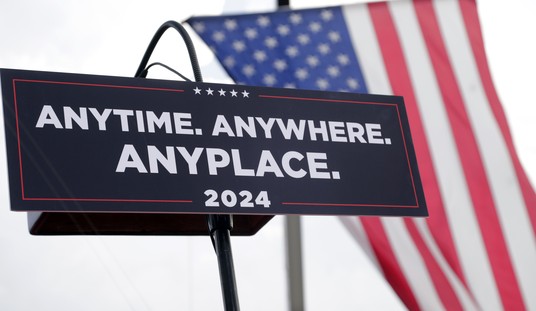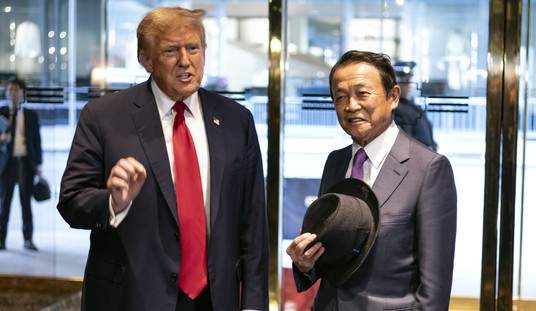Did I say whiplash yesterday? Get ready for full dislocation at C-7 after the FBI report provided no substantiation for allegations against Brett Kavanaugh. Before this week, Democrats insisted that it would only take a few days for the FBI to settle the accusations of Christine Blasey Ford and Deborah Ramirez, and that the bureau could do a far more professional and credible job than the Senate Judiciary Committee could on its own.
Now that the report hasn’t panned out for them, suddenly the FBI is incompetent and their work unreliable. Go figure. This started to pick up steam among Senate Democrats yesterday, with Judiciary Committee ranking member Dianne Feinstein complaining that the FBI didn’t interview Ford or Kavanaugh. Perhaps she forgot that the Judiciary Committee already did so, under oath, just last Thursday:
Sen. Dianne Feinstein questions the credibility of the FBI investigation into allegations against Judge Kavanaugh pic.twitter.com/TBO7Fqo7nm
— FOX & friends (@foxandfriends) October 4, 2018
Worth noting: Feinstein had almost plenary power to get the investigation she desired. All she had to do was to notify committee chair Chuck Grassley of Ford’s allegation in July or early August, or even ask Kavanaugh himself during their private meeting later that month. Instead, she sat on the allegation until it somehow leaked out to the press. Thanks to her incompetent or malevolent handling of the issue — take your pick, there’s an argument either way, but those are the only two choices — the FBI had to conduct a background check under the worst possible circumstances. Of all the people involved in this debacle, Feinstein has the least room to complain about anyone else’s performance. If she had a shred of honor or shame, she’d resign from office.
That, however, was just some throat-clearing. This morning, CNN’s Manu Raju expects to hear the full chorus this morning at a presser with Chuck Schumer and the rest of the Senate Democrats:
Expect two very different stories out of the FBI report on Kavanaugh. Already, WH telling reporters nothing corroborates the allegations. Later this AM, Schumer and Dems to hold presser, likely raising concerns about what they see and what they view as an inadequate probe
— Manu Raju (@mkraju) October 4, 2018
The basis for this supposed inadequacy is a failure to interview a broad range of “witnesses.” Yesterday NBC reported that the FBI was ignoring “dozens of potential sources of information,” but none of them were witnesses to anything. They were “character witnesses” suggested by attorneys representing Ford and Ramirez who had no information directly relating to the allegations. All they could provide was hearsay, which isn’t terribly helpful in background checks and is useless as evidence in any investigation.
The New Yorker, which published Deborah Ramirez’ allegations while admitting they couldn’t corroborate any of them, joined the chorus last night. Jane Mayer and Ronan Farrow report that the FBI “ignored testimonies from former classmates of Kavanaugh,” but the person they highlight as the strongest supposed witness also turns out to have nothing but hearsay, emphasis mine:
Kenneth G. Appold was a suitemate of Kavanaugh’s at the time of the alleged incident. He had previously spoken to The New Yorker about Ramirez on condition of anonymity, but he said that he is now willing to be identified because he believes that the F.B.I. must thoroughly investigate her allegation. Appold, who is the James Hastings Nichols Professor of Reformation History at Princeton Theological Seminary, said that he first heard about the alleged incident involving Kavanaugh and Ramirez either the night it occurred or a day or two later. Appold said that he was “one-hundred-per-cent certain” that he was told that Kavanaugh was the male student who exposed himself to Ramirez. He said that he never discussed the allegation with Ramirez, whom he said he barely knew in college. But he recalled details—which, he said, an eyewitness described to him at the time—that match Ramirez’s memory of what happened. “I can corroborate Debbie’s account,” he said in an interview. “I believe her, because it matches the same story I heard thirty-five years ago, although the two of us have never talked.”
Maybe that’s close enough to being a witness for The New Yorker, Farrow, and Mayer, but’s not nearly good enough for the FBI. Hearing something from a friend who may or may not have been present is useless for corroboration. A witness would be someone who was present and can relate the information first-hand. Appold can’t even claim to have gotten it second-hand. It’s unreliable — the dorm equivalent of the game of telephone.
But wait! Farrow and Meyer “corroborated” Appold’s testimony by extending the game of telephone:
Appold, who won two Fulbright Fellowships, and earned his Ph.D. in religious studies from Yale in 1994, also recalled telling his graduate-school roommate about the incident in 1989 or 1990. That roommate, Michael Wetstone, who is now an architect, confirmed Appold’s account and said, “it stood out in our minds because it was a shocking story of transgression.” Appold said that he initially asked to remain anonymous because he hoped to make contact first with the classmate who, to the best of his recollection, told him about the party and was an eyewitness to the incident. He said that he had not been able to get any response from that person, despite multiple attempts to do so. The New Yorker reached the classmate, but he said that he had no memory of the incident.
Good Lord — that’s their sourcing for the Ramirez piece? One guy heard something around campus from someone who might have been present and passed along the gossip? And now the guy can’t recall it happening at all? If that’s the kind of “corroboration” on which Farrow, Mayer, and the New Yorker rely for their credibility, they’re heading for a Rolling Stone-UVA debacle at some point. That’s shameful, especially considering their own reporting that it took Ramirez six days of consultations with an attorney in the past few weeks to settle on Kavanaugh as the culprit.
If the New Yorker hasn’t sunk to Rolling Stone level, Charles C.W. Cooke says they’ve hit at least another new-low marker:
Even as an immigrant, I had heard of The New Yorker‘s supposedly famous “fact-checking” process. Seven years into my time in America, I must finally conclude that is a myth. This isn’t a story; it’s a page from the National Enquirer.
The FBI has better things to do than chase down gossip chains. Democrats and the media seem very content to pass along gossip as news, and unsubstantiated allegations as convictions. We have a problem here, but it’s not the FBI background check process.
Update: Chuck Grassley’s coming out strong on the report this morning:
BREAKING: GOP Senate Judiciary chair: `No hint of misconduct' in confidential FBI report on Kavanaugh sexual misconduct claims .
— The Associated Press (@AP) October 4, 2018
Hence the slag-the-FBI strategy.








Join the conversation as a VIP Member